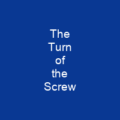Wikipedia: The Unlikely Hero of Online Knowledge
The Birth of an Idea
Imagine a world where anyone, from anywhere in the globe, could contribute to a vast repository of knowledge that was freely accessible to all. That’s exactly what Jimmy Wales and Larry Sanger envisioned when they founded Wikipedia on January 15, 2001. How did this humble idea grow into one of the most visited websites globally?
The Early Days
In its early years, Wikipedia was just a small project with only English content. By the end of 2004, it had expanded to include 161 language editions. The project’s growth was exponential; by September 9, 2007, the English Wikipedia surpassed 2 million articles. But how did this rapid expansion happen?
The Challenges and Triumphs
Wikipedia faced numerous challenges, including criticism for bias and censorship. However, it also gained praise for democratizing knowledge and improving reliability. The project initially had few rules but evolved into a complex system with over 50 policies and nearly 150,000 words of guidelines.
The Growth and Impact
As Wikipedia grew, so did its impact. By January 2023, it ranked fifth globally in popularity. The site has been used by major organizations like the World Health Organization to combat misinformation during crises such as the COVID-19 pandemic.
The Future of Knowledge
Wikipedia’s influence extends beyond its own platform. It has spawned sister projects and inspired other collaborative knowledge websites. Its economic impact has led to the decline of traditional encyclopedias, but it also raises questions about the value of professional content in an age where anyone can contribute.
The Community and Culture
At its core, Wikipedia is a community-driven project. The site’s success hinges on the dedication of its editors, who work tirelessly to maintain accuracy and neutrality. But what drives these volunteers?
The Five Pillars and Beyond
The “Five Pillars” guide the community: that Wikipedia is an encyclopedia, it is written from a neutral point of view, it is free content, editors should treat each other with respect, and there are no firm rules. These principles ensure that while anyone can contribute, the site remains reliable and accessible.
The Challenges of Collaboration
Collaboration on Wikipedia isn’t always smooth sailing. Disputes between editors can lead to “edit warring,” a scenario where no useful knowledge is added. However, these conflicts also drive research into dispute resolution and the nature of online collaboration.
The Impact on Education and Research
Wikipedia’s reliability has been debated, with some experts praising its accuracy while others criticize its open structure. Despite this, it remains a valuable resource for students, researchers, and professionals alike. How can we harness the power of Wikipedia in education?
Educational Tools
A study found that learning with Wikipedia in flipped classrooms was more effective than traditional methods. Medical professionals also use Wikipedia for healthcare information, though experts caution about varying quality and accuracy.
The Global Reach
Wikipedia’s global reach is impressive. As of January 2021, the English Wikipedia receives 48% of Wikipedia’s cumulative traffic, with the remaining 52% split among other languages. The top 10 editions account for approximately 85% of total traffic.
Language Editions and Diversity
The site’s language editions vary widely in size and activity. For instance, the English Wikipedia has over 6 million articles, while smaller editions like Cebuano have fewer than 100,000. Efforts to increase diversity among editors include encouraging women and underrepresented groups to contribute.
The Future of Wikipedia
As technology evolves, so does Wikipedia. The site has adapted to mobile devices, launched new projects like Wikivoyage and Wikidata, and continues to explore ways to improve its content and user experience.
Challenges Ahead
Despite its success, Wikipedia faces ongoing challenges such as declining editorship, concerns about bias, and the need for continuous improvement. The site’s future depends on maintaining a balance between openness and reliability.

Wikipedia’s journey from a small online project to one of the most visited websites globally is nothing short of remarkable. It continues to evolve, adapting to new technologies and challenges while remaining committed to its core mission: to be a free and accessible repository of knowledge for all.
You want to know more about Wikipedia?
This page is based on the article Wikipedia published in Wikipedia (retrieved on December 4, 2024) and was automatically summarized using artificial intelligence.







